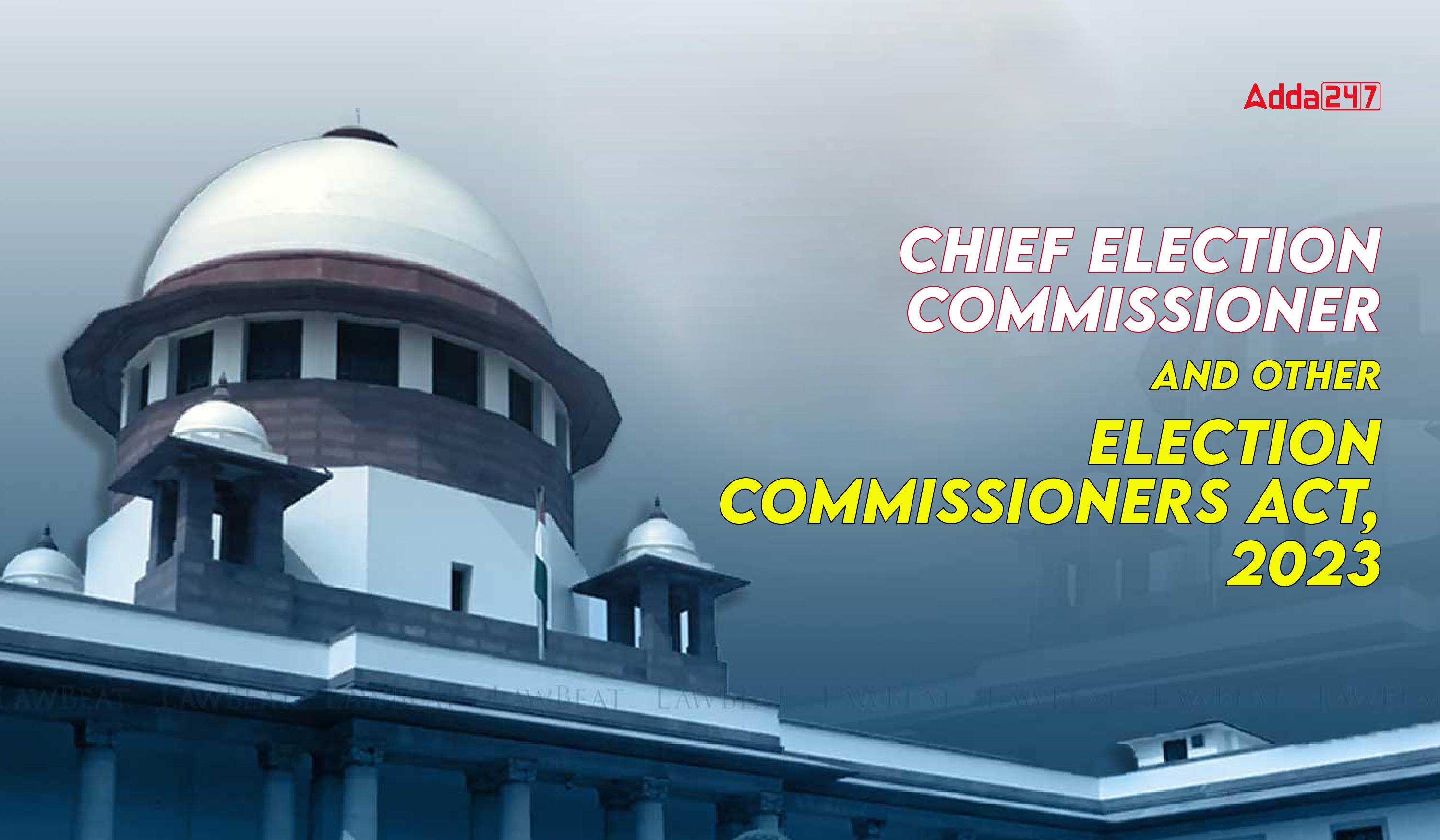Table of Contents
The President gave her assent to the Chief Election Commissioner and other Election Commissioners (Appointment, Conditions of Service and Term of Office) Bill, 2023 in December, 2023. Recently, the Hon’ble SC refused to stay the said Act.
Replacement of the Act
It replaces the Election Commission (Conditions of Service of Election Commissioners and Transaction of Business) Act, 1991.
Aim of the Act
- An Act essentially aims to regulate the appointment, conditions of service, and term of office for the Chief election commissioner (CEC) and other election commissioners (EC), as well as outline the procedure for the functioning of the Election Commission.
- The legislation aims to bring transparency to the appointment process, responding to a directive from the Supreme Court of India in the Anoop Baranwal v Union of India case, 2023.
Composition
- The SC noted recommendations from the Dinesh Goswami Committee on Electoral Reforms (1990) and the Law Commission’s 255th report on Electoral Reforms (2015).
- The SC using its power under Article 142 of the Constitution of India laid down that the CEC and ECs shall be appointed by a Committee consisting of-
- Prime Minister
- Leader of Opposition/leader of the largest opposition party in the Lok Sabha
- Chief Justice of India
- SC ruled that this mechanism shall be in place till Parliament enacts a law on this matter.
- However, as per the Act, The CEC and other ECs shall be appointed by the President on the recommendation of a Selection Committee consisting of:
- Prime Minister as Chairperson.
- Leader of Opposition/leader of the largest opposition party in the Lok Sabha.
- Union Cabinet Minister to be nominated by the Prime Minister.
Eligibility of CEC & ECs
- Persons who are holding or have held a post equivalent to the rank of Secretary to the Government of India, and
- Should be persons of integrity, who have knowledge of and experience in management and conduct of elections.
Salary,Term etc. of CEC and ECs
The CEC and other ECs shall-
- be paid a salary which is equal to the salary of a Judge of the Supreme Court.
- shall hold office for a term of six years from the date on which he assumes his office or till he attains the age of sixty-five years, whichever is earlier.
- shall not be eligible for re-appointment
- CEC can only be removed from his office in a manner and on grounds similar to that of a Supreme Court judge.
- An EC can be removed from office upon the recommendation of the CEC.
- may resign at any time by writing to the President.
- A Search Committee headed by the Cabinet Secretary will propose a panel of names to the Selection Committee.
Constitution of India
-
- Articles (324-329) in Part XV of the Constitution deals with However, the Constitution does not lay down a specific legislative process for the appointment of the CEC and ECs.
- The President makes the appointment on the advice of the Union Council of Ministers headed by the Prime Minister.
Concerns for the Act
- The composition of the Selection Committee, predominantly comprised of members from the ruling government, raises concerns about potential interference in the independence of the Election Commission of India (ECI).
- The Act upholds the validity of the Selection Committee even if there is a vacancy or defect in constituting the Committee.
- By limiting the eligibility criteria of the CEC and ECs to civil servants, the act may exclude other qualified individuals for the post.
- There is inequality in removal of CEC and ECs.
- The Act is silent regarding the post-retirement jobs to CEC and ECs.
Therefore, the independence of the Election Commission should be protected being a part of the basic structure of the Constitution of India.



 TSPSC Group 1 Question Paper 2024, Downl...
TSPSC Group 1 Question Paper 2024, Downl...
 TSPSC Group 1 Answer key 2024 Out, Downl...
TSPSC Group 1 Answer key 2024 Out, Downl...
 UPSC Prelims 2024 Question Paper, Downlo...
UPSC Prelims 2024 Question Paper, Downlo...




